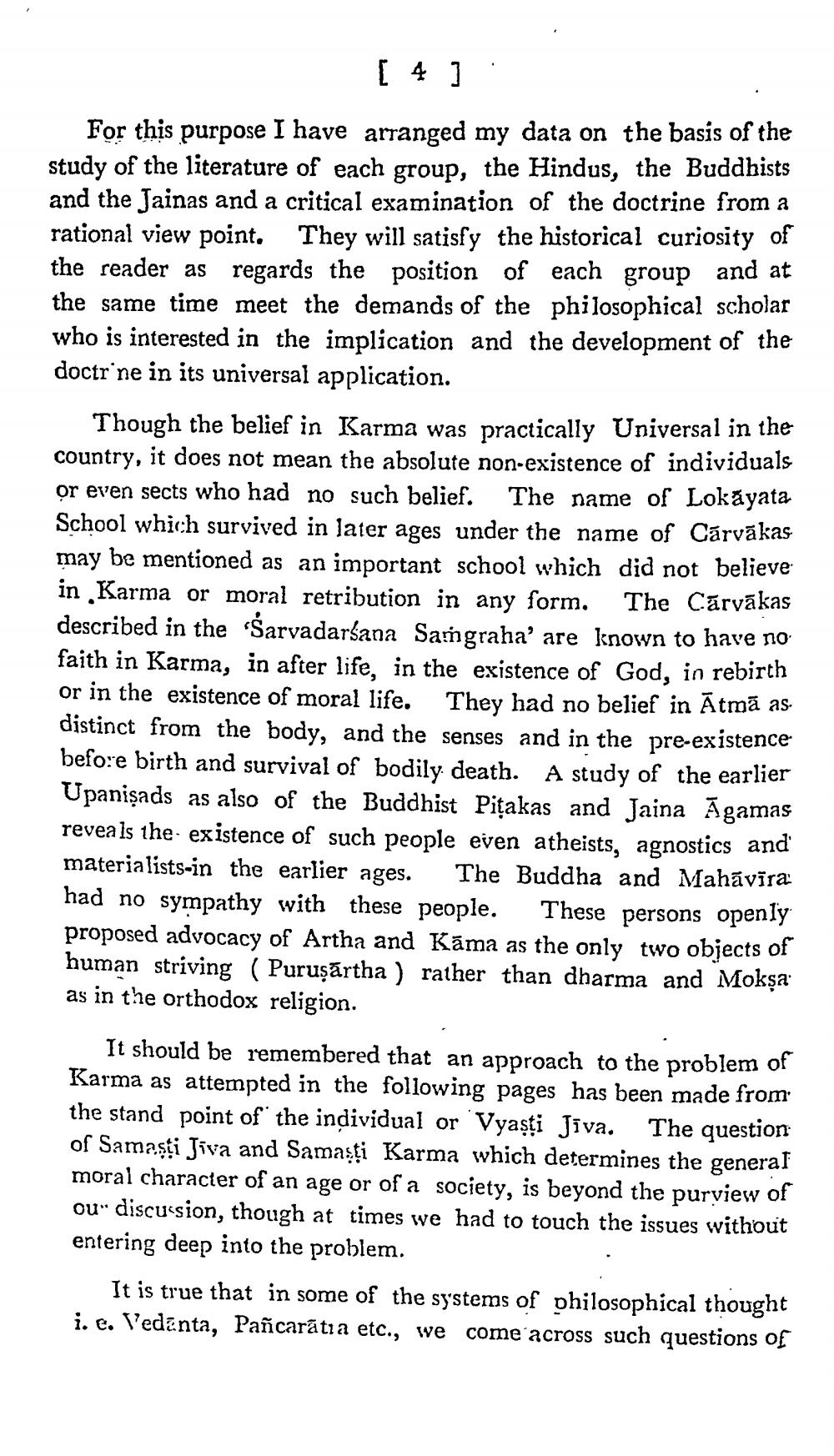________________
[ 4 ]
For this purpose I have arranged my data on the basis of the study of the literature of each group, the Hindus, the Buddhists and the Jainas and a critical examination of the doctrine from a rational view point. They will satisfy the historical curiosity of the reader as regards the position of each group and at the same time meet the demands of the philosophical scholar who is interested in the implication and the development of the doctrine in its universal application.
Though the belief in Karma was practically Universal in the country, it does not mean the absolute non-existence of individuals or even sects who had no such belief. The name of Lokayata School which survived in later ages under the name of Carvākas may be mentioned as an important school which did not believe in Karma or moral retribution in any form. The Carvākas described in the 'Śarvadarśana Saṁgraha' are known to have no faith in Karma, in after life, in the existence of God, in rebirth or in the existence of moral life. They had no belief in Atmā as distinct from the body, and the senses and in the pre-existence before birth and survival of bodily death. A study of the earlier Upanisads as also of the Buddhist Pitakas and Jaina Agamas reveals the existence of such people even atheists, agnostics and materialists-in the earlier ages. The Buddha and Mahāvīra had no sympathy with these people. These persons openly proposed advocacy of Artha and Kama as the only two objects of human striving (Puruṣārtha) rather than dharma and Mokşa as in the orthodox religion.
It should be remembered that an approach to the problem of Karma as attempted in the following pages has been made from the stand point of the individual or Vyasti Jiva. The question of Samasti Jiva and Samaşți Karma which determines the general moral character of an age or of a society, is beyond the purview of discussion, though at times we had to touch the issues without entering deep into the problem.
ou"
It is true that in some of the systems of philosophical thought i. e. Vedanta, Pañcarãtia etc., we come across such questions of




